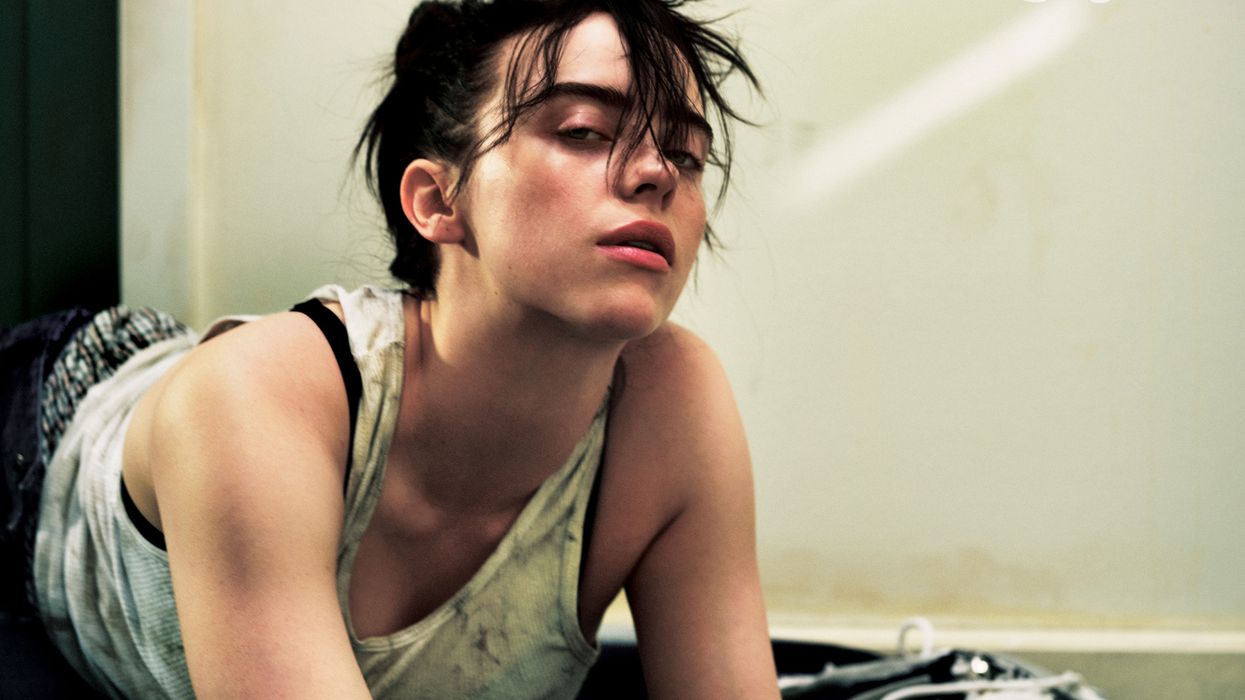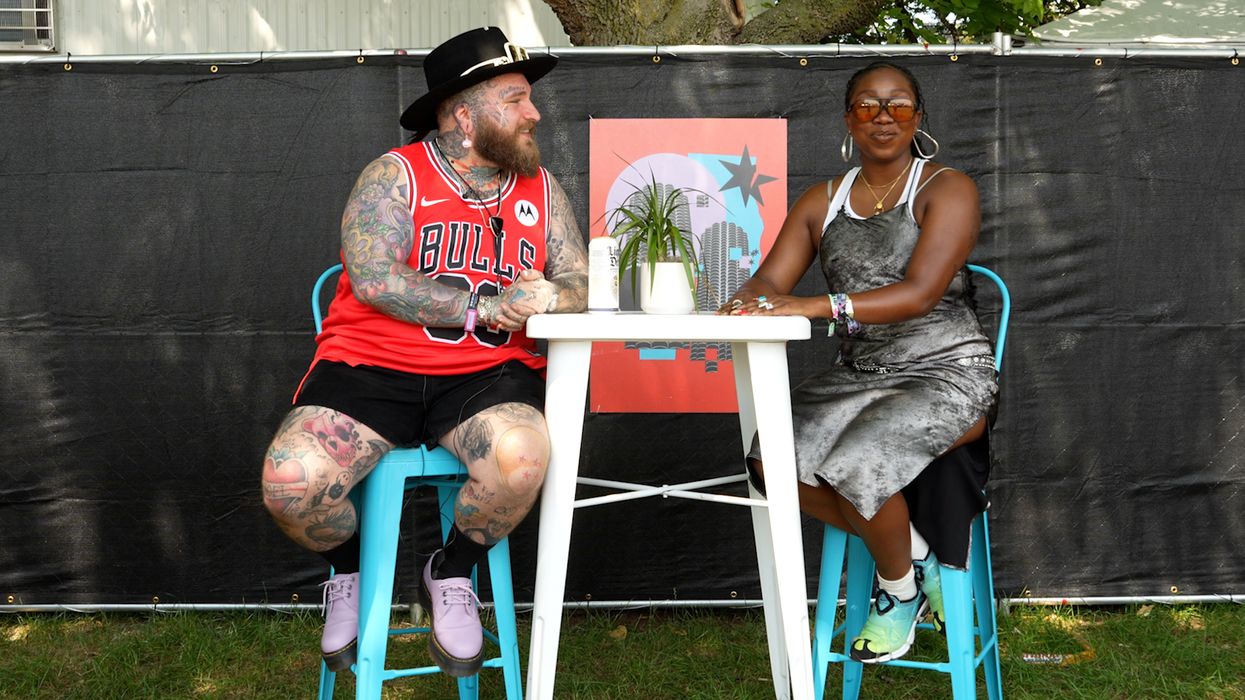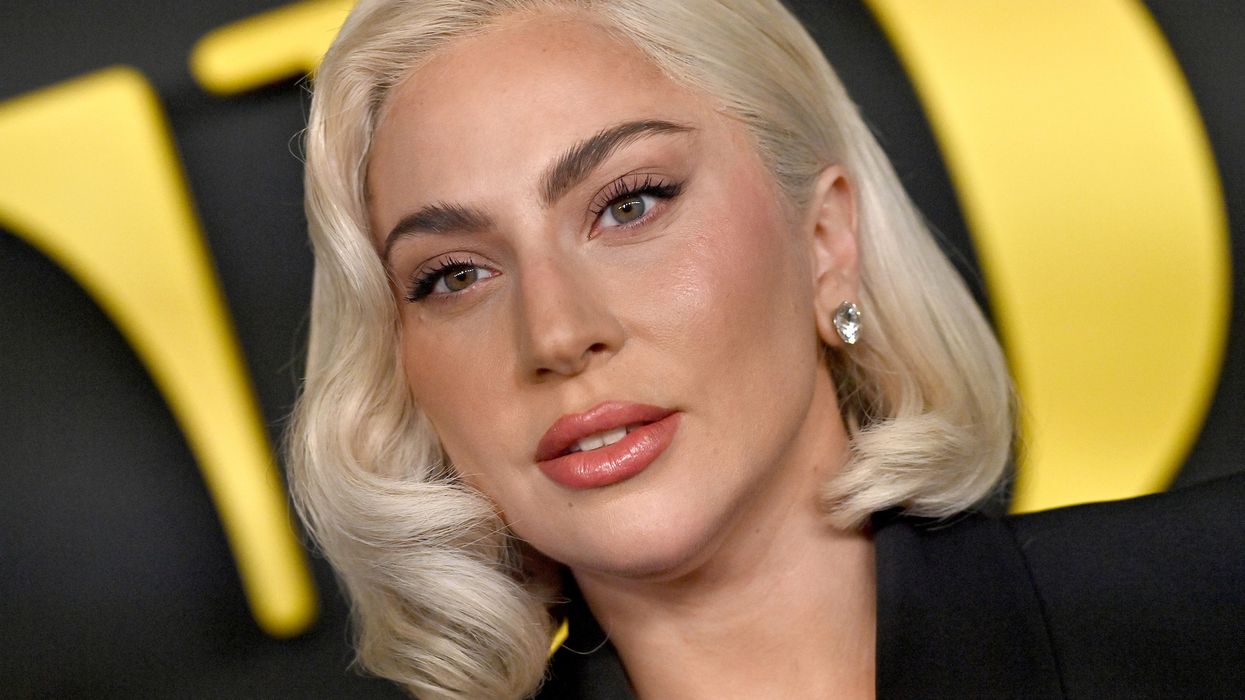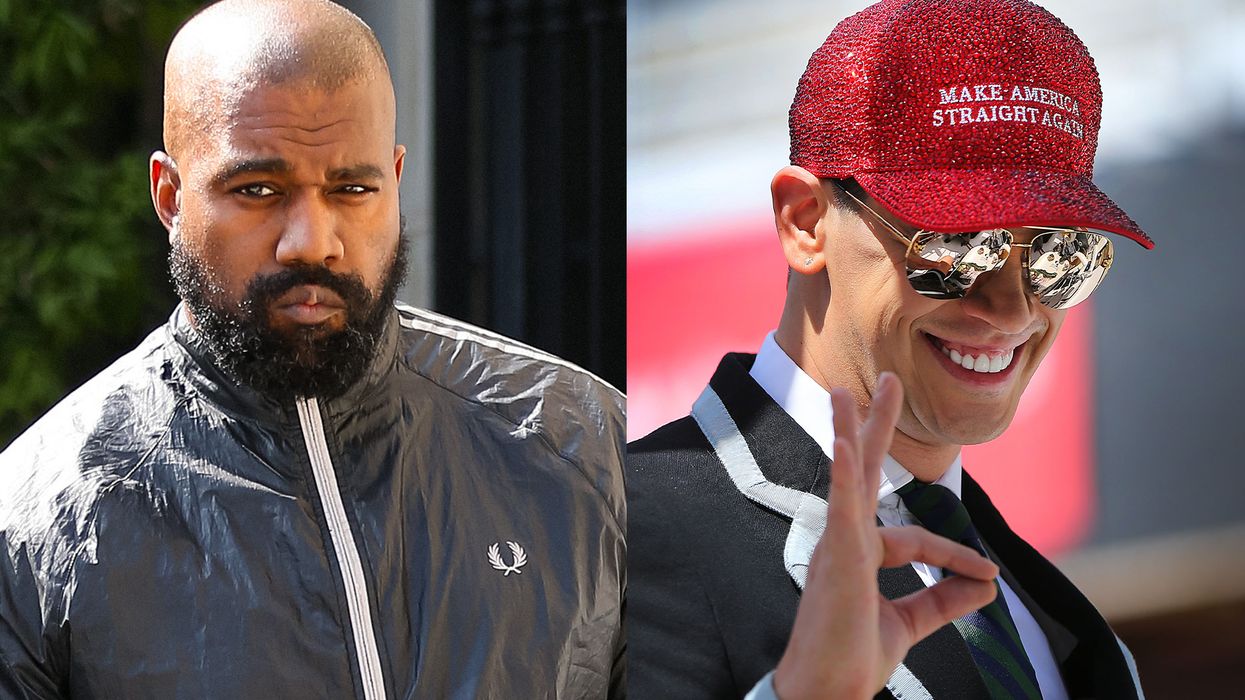Last november, just before the Latin Grammys in Seville, Spain, a crowd huddled in front of a club called Sala Cosmos, where the Brazilian superstar Anitta was co-hosting a massive party with Instagram. It got too massive: The venue was at full capacity, but that didn’t stop people from shoving toward the door, eager to get in. Some of them spilled onto the sidewalk, dancing to the muffled, breakneck Brazilian funk beats echoing from the DJ booth.
Inside, Anitta was the life of the party, ass up and twerking on the dance floor in a highlighter-bright green-and-yellow dress. Stars like hip-hop legend DJ Premier and the Colombian pop band Morat milled about, while Anitta’s dancers, nearly all of them Brazilian, backed her up. The DJ spun track after track, each moment a showcase of propulsive, hyper-energetic Brazilian funk, mirroring the parties in Rio where this voltaic blend of hip-hop, African rhythms, and electronic music is played. These days, Brazilian funk (also known as funk carioca or baile funk) is bigger than ever, spawning TikTok dance challenges and full-on choreography. Anitta and her friends threw themselves into the moves — a particularly complex sequence involved push-ups. At one point, Ovy on the Drums, the producer known for making hits with Karol G, came up and told her that to keep up, “uno tiene que ser atleta” — “you have to be an athlete.”
Late into the night, someone on Anitta’s team told her she could go home if she wanted. “I was like, ‘I’m already drunk! Why am I going to leave?’ ” She ended up being one of the last people standing, shutting down the club. “It was like 3 a.m., and they were like, ‘OK, they need to close the venue.’ I was like, ‘Where’s the afterparty?’ ” she says. “I said, ‘I’m only leaving when I’m kicked out,’ and I got kicked out.”
None of this is a big surprise: Anitta has built a brand as a bright, brazen human firework with a supremely dedicated global fan base — 65 million followers on Instagram, 40 million monthly listeners on Spotify — that would chase her to any corner of the planet. At 30, she’s a trilingual triple threat, with chart-toppers in English, Spanish, and Portuguese, and her splashy reggaeton and pop hits have helped earn her a Grammy nomination and even a Guinness World Record. “I’m sorry for others, but I think I’m the person who knows the most how to do a party,” she jokes the next morning, a mischievous smirk on her face.
As she says this, she’s sitting in the lobby of her hotel in Seville. You can’t tell she’s been up all night: She’s wearing a white crop top and a crisp black skirt, her red hair in neat, casual waves. Because Spain is hosting the Latin Grammys, the week has been packed with flamenco showcases and Spanish performances, which makes Anitta’s event seem even more bold: Only she’d have the guts to throw a gigantic baile-funk bash in the middle of everything.
To her, it was an opportunity to demand attention for Brazil, a country that’s frequently and unfairly overlooked in the Latin-music industry because of the differences in language and culture. “This party and things like that help people understand my environment,” she says. And it’s part of a much bigger plan. Later this year, Anitta will release a Brazilian funk album she hopes will bring more people to the music that brought her up. “I was born and raised in the communities of Brazil, of Rio, and these are the places that Brazilian funk originally comes from,” she explains. “This was always my reality.”
The music made her a breakout star in Brazil. Anitta, whose real name is Larissa de Macedo Machado, comes from Honório Gurgel, a working-class neighborhood in Rio de Janeiro. In 2010, she teamed up with funk-carioca producer Batutinha and signed to a funk label called Furacão. By then, Brazilian funk was already an underground sensation, a result of DJs throwing huge parties that drew from funk and hip-hop in primarily Black favelas during the Seventies and Eighties. (Afrika Bambaataa’s “Planet Rock” is often credited as the foundation of Brazilian funk). Later, in the Nineties, DJs began incorporating freestyle records flown in from Miami, amping the music with offbeat electronic influences.
Brazilian-funk DJ Rodrigo Gorky, who worked on Anitta’s upcoming album, says that he used to refer to the music as “Miami bass on steroids.” “Now, it’s a complete thing of its own,” he says. The genre has shot off into all directions, from tech house to Afrofuturism. Anitta played a special role in its growth, adding a more commercial, pop-focused twist throughout her career. But while she’s never abandoned Brazilian sounds, she’d been busy scoring hits in other genres. “When you try to compare me with another Latin artist that is on the charts, or you try to compare me with another Brazilian artist that is on the charts, it’s not fair because the Latin ones are not going to be on the Brazilian ones and the Brazilian ones are not going to be on the Latin ones,” she explains.
Then, last summer, she dropped the EP Funk Generation: A Favela Story, along with videos that capture life in Rio. It was the first sign that she was turning back to her roots in a profound way, and there are deeply personal reasons for that: Anitta’s been through a lot over the past couple of years, including a cancer scare in 2022. “I was thinking I was going to die,” she says. “And I said, ‘You know what? I’m going to do an album for myself in case it’s the last thing I do — not worrying about what’s going to happen after the album, not worrying about if the album is going to be good, if people are going to like it, if it’s going to be on the charts.’ ”
Over the next year, Anitta overhauled her management and label teams, moves that positioned her to pursue the album. “Now we found a team,” she says. “I have the support of people that also have the vision and the patience that it takes to have to do this historical thing.” She knows that making a Brazilian funk album — especially when people are so used to hearing her make more mainstream genres — isn’t an easy task. “It’s a project that requires a lot of patience from everybody. Everybody needs to be very aligned and understanding that this is something that is going to take a lot of time.”
Brazilian funk has continued to grow in the pop world, attracting interest from stars like Rauw Alejandro and Cardi B, who played a snippet of Pedro Sampaio’s funk remix of her song “WAP” during her 2021 Grammys performance. But it hasn’t gotten its due at a global level. Gorky says if anyone can make it an international phenomenon, it’s Anitta. “There’s no one better than her to represent all this,” he says.
“To be the pioneers is very hard because you’re doing something nobody has done, so you don’t have an example to follow,” Anitta explains. “You need to trust your gut, your feelings, and your intuition.”
ANITTA STARTED THINKING about the new album when she was in the hospital. She says that in 2022, she had major autoimmune issues while suffering a series of misdiagnoses. (She had surgery for endometriosis that summer, and that December had to cancel a public appearance because she was admitted to a hospital in São Paulo.) At one point, the situation turned into a full-blown cancer scare. She went through tests and treatments for five months, somehow keeping it a secret from millions of fans who follow her every move.

At that time, everything seemed great in her career. Anitta approached the universe like she was game for anything. She was unafraid to talk about sex, plastic surgery (“My favorite one was my nose,” she told Andy Cohen), and eventually politics. Fans pressured her to speak out against Brazil’s former right-wing president Jair Bolsonaro when he was campaigning in 2018, and though Anitta wasn’t very political — she’s said she “started to have access to a good education after I got money” — she studied up. Soon, she was one of Bolsonaro’s most outspoken critics.
By 2020, a Brazilian newspaper ranked her the third-most-influential political figure in the country, and when elections came in 2022, journalists wrote about how much sway her endorsement had. (Anitta supported current president Luiz Inácio Lula da Silva.) Meanwhile, her music was bigger than ever: “Envolver,” from her 2022 album, Versions of Me, made her the first solo Latin artist to reach Number One on Spotify’s Global chart. In 2022, she became the first Brazilian artist to win a VMA.
It felt like she was everywhere, constantly working, constantly creating, constantly weighing in. But she was exhausted. “In the beginning, when things were going unbelievably amazing and fast and crazy, it was because I was just having fun,” she says. “At some point when things got huge, I started to care, with pressure and numbers and ‘Oh, my God, keep my high-level profile!’ ” Her illness forced her to slow down and think about the never-ending grind her life had become. “It was hard for me to turn off the importance that I used to give to these opinions — not the opinions of ‘Do I like her or not like her,’ but about the way you are being seen, like, ‘Oh, am I big enough now? I was big last year. This year I’m not so big. Oh, I’m failing.’ ”
As she healed physically, she focused on her spiritual and mental well-being. “We can literally die tomorrow,” she says. “All of these people saying, ‘Oh, she’s not hot anymore.’ ‘Oh, she was hot last year.’ ‘This is a good look.’ ‘This is a bad look.’ ‘This and that.’ We can literally die tomorrow. And then nothing matters. They will completely forget about you. Your life is over, and their lives keep going. And you lived only to maintain yourself in these people’s minds and thoughts, even though they don’t actually care.”
Major career changes followed. In March 2023, she vented on Twitter about wanting out of her contract with Warner Records. “If there was a fine to pay, I would have already auctioned off my organs, no matter how expensive it was, to get out,” she tweeted. She blasted the label for using a photo of her with “Envolver” playing in the background on International Women’s Day, saying execs originally told her the song would “never break without a feat[ure] cuz I wasn’t strong enough for that.” “I already accepted the sad unfair fact that I’m the major investor here and asked the label to just do the simple job they were supposed to: promote my music,” she wrote.
She says she spoke up because nothing else worked. “Nowadays, I think it was a little immature, but also it was a little desperate. I was desperate,” she says. “It is what it is. Nowadays, being more mature, I would maybe do it differently. But maybe if I did differently, I wouldn’t be where I am right now.”
Warner and Anitta announced they were parting ways in April 2023. (“I really appreciate the way things ended,” she says diplomatically.) A few weeks later, she signed with Universal’s Republic Records — and then in June, news broke that she’d split from her longtime manager Brandon Silverstein. Anitta brought on Rebeca León, known for working with Rosalía, a change that marked a clean break in her career. Anitta has worked to keep it that way. She avoids drama; when people sent her a viral video of Silverstein screaming at someone on Zoom, she didn’t comment. “This is not the type of thing that I’m trying to attract to my life,” she says. “I was like, ‘Guys, I don’t want to be part of this conversation, to be honest.’ ”
Instead, she lasered in on the album, determined to make Brazilian funk right. “When I go to the studio, sometimes I hear people trying to do it, but it’s still sounding very gringo,” she says, laughing. Gorky remembers that she was hell-bent on getting unexpected sounds. “She’s like, ‘Nah, that’s too commercial. That’s way too pop, there’s nothing new and exciting about this. Show me more.’ And then we would start showing her really weird stuff, and she’s like, ‘That’s what I’m looking for,’ ” he says.
The final product reinforces the funk with touches of reggaeton and pop, and Anitta says it doesn’t fit neatly into any category. “It’s kind of like an artistic-alternative album,” she explains. “It’s not a mainstream of Latin because it’s funk. It’s not in the mainstream of the English world.” She’s let go of chart expectations. “When you’re just trying to beat this person, beat that chart, beat that number, you don’t have a purpose.… And for me, it’s way more. I want to open doors for my people.”
With León, she says she’s found a kindred spirit who will help her fight. “I feel a strength, a grounding. I look at her and I say, ‘I think she gets it.’ She is strong and confident on the decisions and I feel this power and I love it. In my work, every time I looked around, everyone wants this strength from me. With her, I look to her and I feel the strength,” Anitta says.
Anitta spent the beginning of 2024 back in Rio, getting ready for Carnival in February and preparing the album release. When we catch up in January, she admits that things have been more hectic than she wants. “When the work comes back to being crazy, as I am right now in Brazil, then I just feel like, ‘Oh, my God, I took a step back,’ ” she says. But she makes time for yoga and meditation every day, and goes on spiritual retreats every five months or so.
Her favorite thing to do when she’s off is to binge movies. “I’ve seen everything that you can imagine,” she says with a laugh. The night before, she went to the movies with her family to see Mamonas Assassinas: O Filme, a biopic about a Brazilian rock band that made it big in the early Nineties before a plane crash killed all five members. Plane crashes seem to be a theme; she also watched Society of the Snow, recently, followed by the 36-minute making-of doc on YouTube. Some day, she hopes to direct her own project, one that draws from her life to inspire others. “I really want to do a series about my whole life, and not an egocentric thing. I think everything nowadays is like an ego trip. And it’s not about that. I want to show the difficulties and and how we can come over to that. I want to produce something and direct something that when people finish and they think, ‘Okay, it’s possible for me to do whatever I want.‘ ”
A lot still weighs on her. She’s deeply concerned about how obsessed with the internet and social media some of her fans seem to be. It breeds the kind of culture of constant comparisons and rankings she’s trying to move away from. There’s an accessibility to Anitta; she says she tries to do frequent meet-and-greets to talk to fans directly. But she’s honest about what so much pressure can do to stars. “I tell them, ‘You cannot wish for me to be healthy and at the same time charge me with charts and Number Ones everywhere in the world, in Latin [America], in Brazil. A person can’t be healthy and Number One and happy at the same time,’ ” she says. “That comes back to this point of the internet, that people are not getting used to life being a cycle anymore. They want everything at the same time.”
She’s already influenced so much of public life in Brazil. Now, she hopes she can impart a few more lessons about letting go and staying present. “Let’s just live life appreciating everything, not thinking, ‘How am I going to get something from this?’ Just doing things because you want to — that’s the message I’m going to send with this album.”






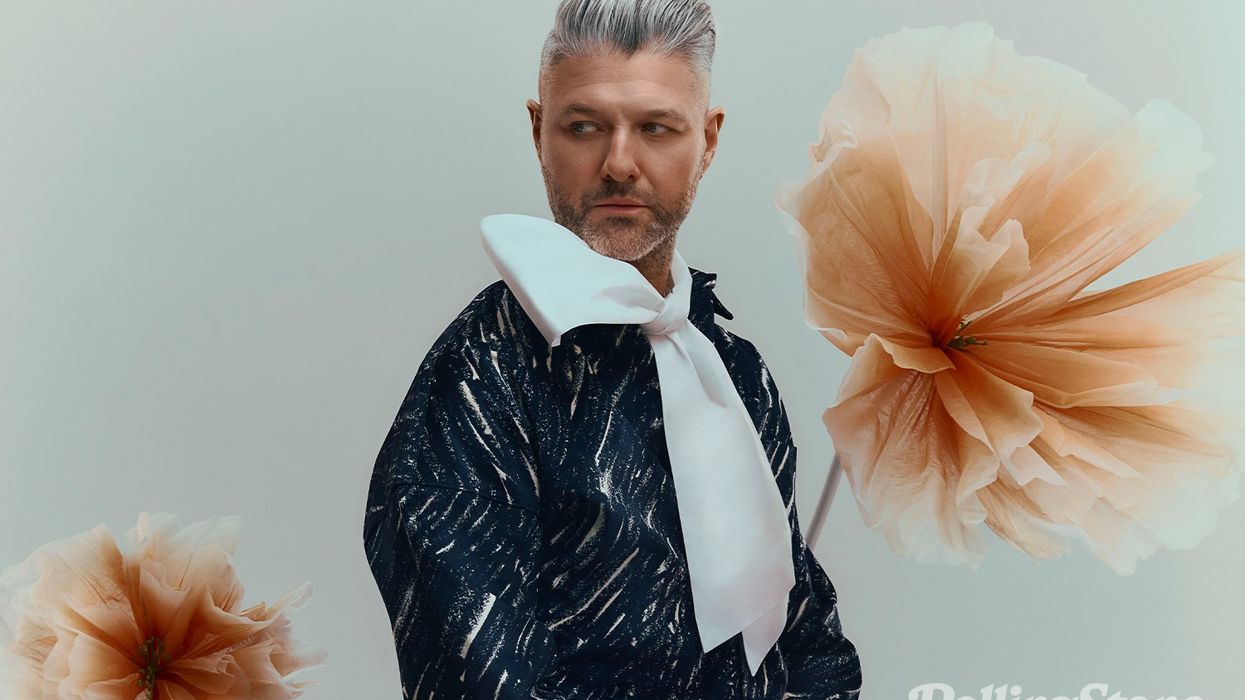
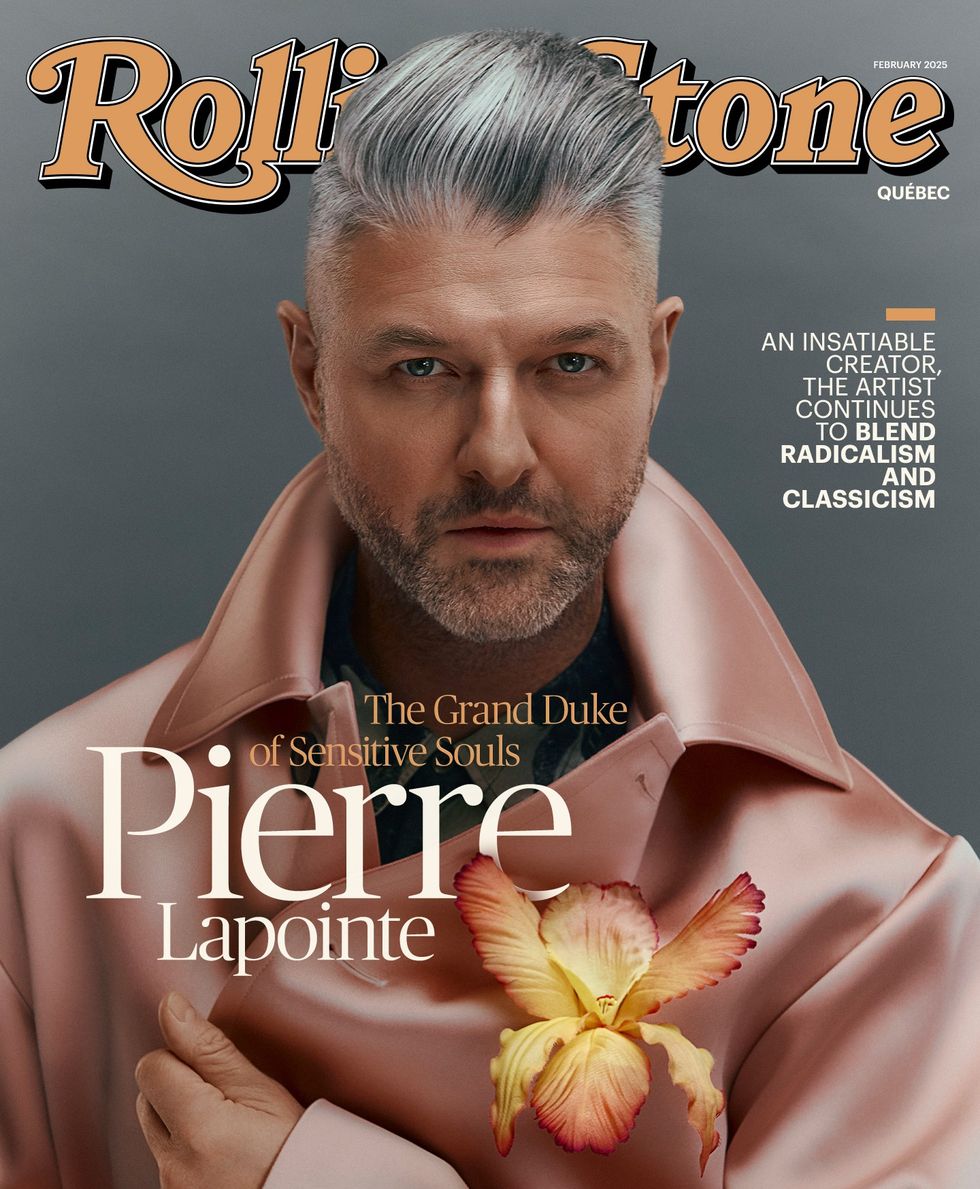 Coat (polyester and wool), shirt (silk), Dries Van Noten, SSENSE.com / Flower (silk), M&S Schmalberg
Coat (polyester and wool), shirt (silk), Dries Van Noten, SSENSE.com / Flower (silk), M&S Schmalberg
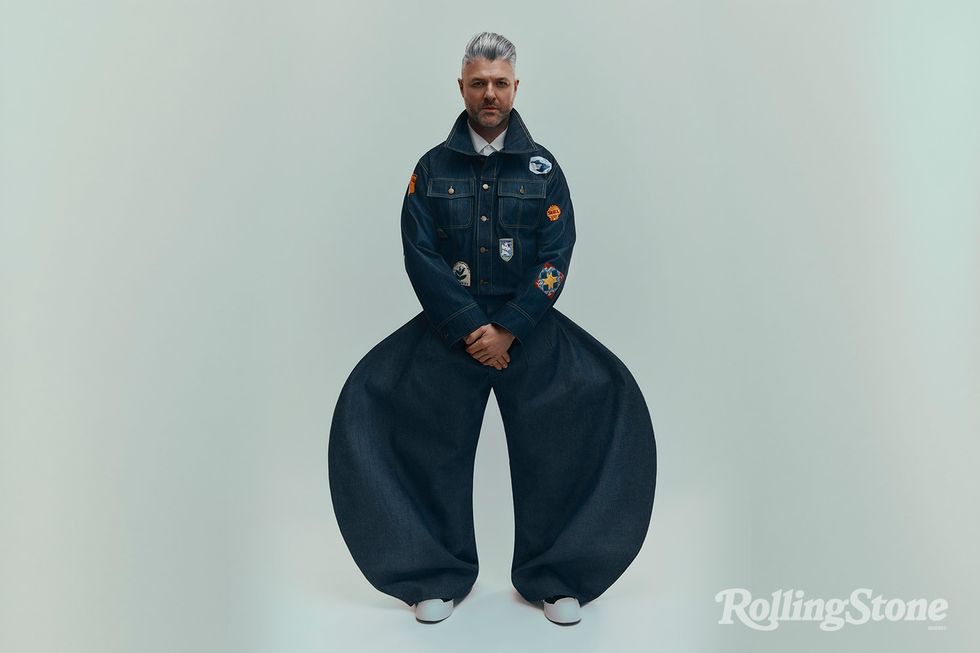 Blouson (denim and hand embroidered patches), WJ Crosson / Shit (polyester), Homme plissé Issey Miyake, Holt Renfrew/Pants from personal collection/ Shoes(canvas), Marni
Blouson (denim and hand embroidered patches), WJ Crosson / Shit (polyester), Homme plissé Issey Miyake, Holt Renfrew/Pants from personal collection/ Shoes(canvas), Marni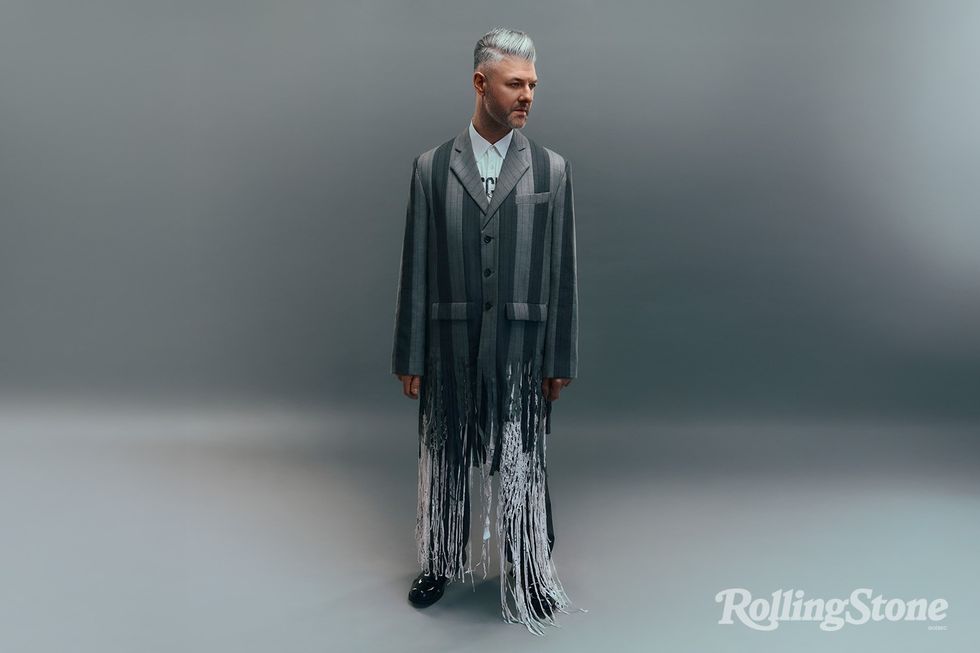 Jacket and pants (virgin wool), shirt (acrylic coated cotton), Moschino / Shoes from Pierre Lapointe's personal collection
Jacket and pants (virgin wool), shirt (acrylic coated cotton), Moschino / Shoes from Pierre Lapointe's personal collection